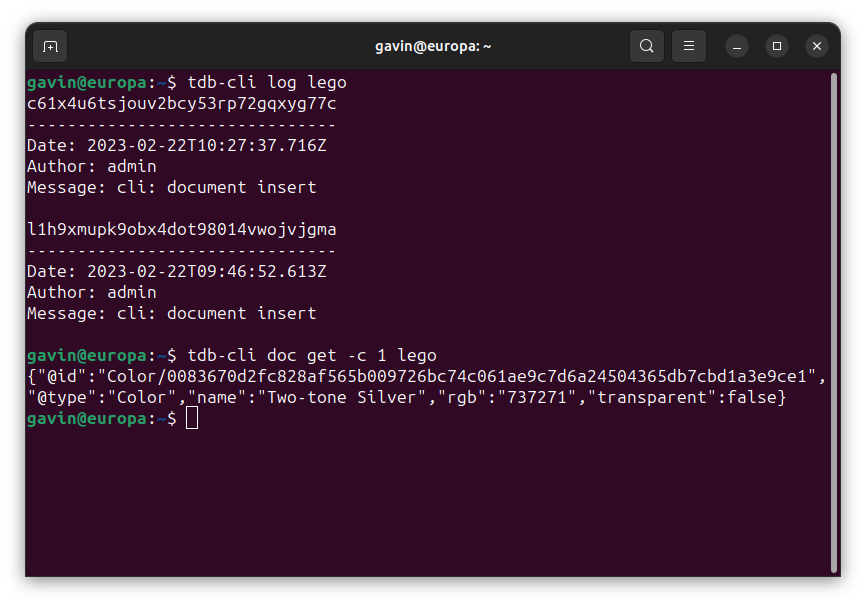
Collaborative Knowledge Management
A solution to enable safe collaboration over complex data. Build and deliver knowledge where it’s needed with TerminusCMS.
Git-like collaboration
Document graph database
Graph query + vector search
TerminusCMS at a Glance
A knowledge graph management platform for the collaborative curation of high-quality data.
Git-Like Revision Control
Compact deltas enable fast query of any past or current commit to allow branch, merge, diff, and time travel.
Data Pull Requests
Pull request workflows (change requests) are built into the data layer.
GraphQL API
Use REST and GraphQL APIs to serve data and content.
Analytics Engine
Graph query plus vector search using OpenAI.
Data Curation
Document editing UI auto-generated from the schema complete with validation.
NOW & FOREVER
Challenges
Do you need CMS functionality for data, provenance over it, a way for domain experts to share knowledge, or a way to model and discover insights from complex data sets? If so, TerminusCMS might be for you.
Collaborative Knowledge Management Needs Revision Control
If you have experts curating data for services and products you need version control to maintain accuracy. This is hard to build and uncommon in data management platforms.
Modeling Complex Infrastructures with Graph Databases is Hard
Most graph databases have a high technical barrier and a small pool of expertise. This makes using knowledge graph data difficult.
Features
TerminusCMS is designed from the ground up to solve the problems of distributed revision control over knowledge graphs. It is Git for knowledge management.
Immutable Delta Encoding
TerminusCMS keeps versions of everything in an extremely compact delta format (succinct data structures).
Query All History
TerminusCMS is able to query any past or current database commit. Complete transparency of data provenance .
Collaboration
Data version access enables collaboration with diff/merge management to empower the use of CI/CD and to mange database divergences.
Schema Control
An easy to model JSON based schema auto-generates a data curation UI complete with validation and schema checks.
Headless Architecture
Work with JSON and GraphQL to build front-ends fast, lowering the technical barriers to knowledge graph entry.
Semantic Powers
Knowledge graph plus vector search provides similar search and clustering capabilities.
Benefits
TerminusCMS is a unique solution that aims to lower the technical hurdles for those wanting to build solutions around knowledge graphs with collaboration and provenance at its heart.
Fast and Convenient Development
Standards based approach (JSON & RDF) combined with native revision control to branch, test, and release helps you to develop fast.
Collaboration with Control
Immutable delta encoding and version history query enables a suite of Git-like data management features to maintain data quality and reduce downtime.
Model Complex Content Infrastructures
Document-graph oriented database and simple JSON based schema makes building complex knowledge graphs more accessible.
Data Provenance
When the history of your data matters, TerminusCMS lets you know what happened when, who changed what, and can compare difference states of your data.
Scale Big
TerminusCMS' sparing use of memory has huge performance benefits over other NoSQL databases such as MongoDB and, Neo4j.
AI for Your Data
TerminusCMS comes with vector search enabling you to capture the semantic relationships between data items, enabling efficient and accurate similarity-based querying


Try TerminusCMS
Get started in minutes and for free with our TerminusCMS Community Package. Clone an example from the dashboard to experiment and play today.


